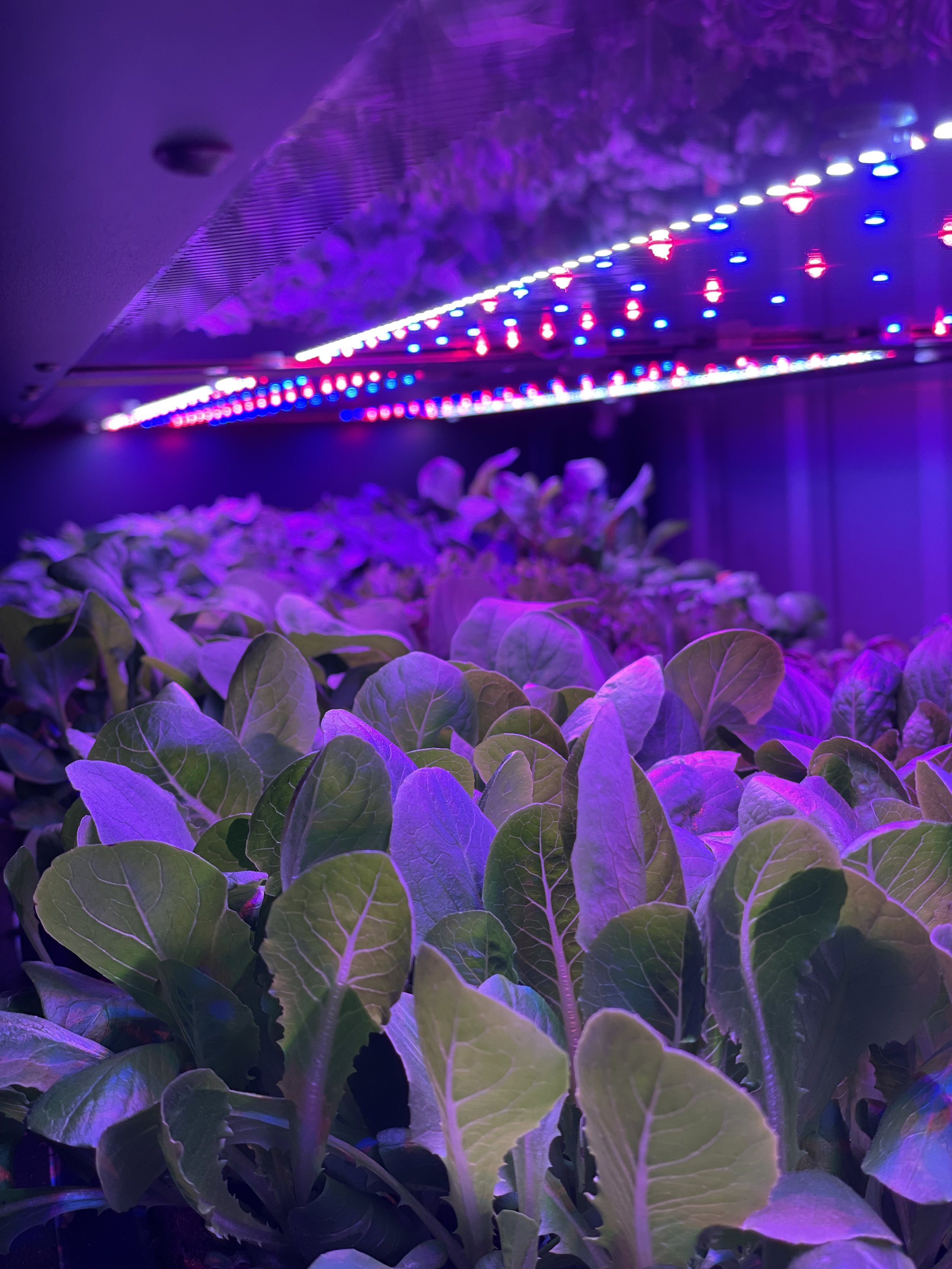
News About Farming in Shipping Containers & Limited Indoor Spaces
Urban Farming Takes Root: Landmark Tower to Feature Vertical Greenhouse and Smart Growing Systems
An eye-catching 12-storey tower is transforming the city centre’s skyline, built and joined onto the former Woolworths store, ‘stepping up’ the building away from Oxford Street to the rear at Picton Yard.
The project is set to be complete in July, with works now around 70% finished. It will house roughly 120 residents, 350 people working in the commercial office spaces, plus ground floor businesses, an exhibition space, and education zone.
The development will feature a vertical urban farm, a five-storey green house which will produce crops and vegetables, a display aquarium, and a ‘biophilic walkway’.
It will use alternative energy sources, such as smart devices to monitor and help understand consumption levels and ecological footprint, communal residential spaces at rooftops and greenhouses, and the incorporation of greenery on balconies, and art throughout the building.
VIDEO: What Began With 3 Shipping Containers Has Evolved Into a 20-Container Operation, Equivalent to a 70-Acre Traditional Farm
Shannon O'Malley discovered hydroponics when she relocated from Pennsylvania to Florida, where traditional gardening methods failed her. Frustrated by the harsh climate, she transformed her garage into a hydroponic garden that yielded an abundance of produce, so much that she began sharing with her community. This simple start would grow into Brick Street Farms, a hydroponic farm that generated $2.5 million in revenue in 2024.
What began with 3 shipping containers has evolved into a 20-container operation, equivalent to a 70-acre traditional farm. Brick Street Farms specializes in general hydroponics, growing leafy greens and microgreens, supplying both local consumers and restaurants while maintaining wholesale partnerships with stores. Their controlled environment ensures chemical-free, pest-free produce that meets the highest quality standards.
Q+A With Hamilton Horne of King Tide Farms
Our farm is a 40-foot refrigerated container (which takes up 320 sqft) that has been converted into a hydroponic smart farm. Our container translates to two acres of traditional farmland. What sets us apart is that we are practicing Controlled Environment Agriculture (CEA), which allows a grower to reduce the incidences of pests or disease, increase overall efficiency, and save resources. We utilize hydroponic growing systems to ensure that the plants receive optimal nutrients and water needed to produce an ample crop.
The entire process of CEA focuses on making the most of space, labor, water, energy, nutrients, and capital to operate while still producing a bountiful harvest.
USA - OHIO: Urban Farming Initiative and Walnut Hills Redevelopment Foundation Partner to Grow Neighborhood Gardens
The Urban Farming Initiative (UFI) and the Walnut Hills Redevelopment Foundation are thrilled to announce a new partnership aimed at revitalizing and coordinating urban gardens in the Walnut Hills neighborhood. Through this collaboration, UFI will work closely with garden coordinators, volunteers, and community leaders to enhance the gardens' output, while also providing support for local events and programs.
As part of this initiative, Ben Booker, UFI's Executive Director, will lead the project. A University of Cincinnati graduate with an urban agriculture certificate, Booker brings extensive expertise in urban agriculture and community development.
The State Fair of Texas' Year-Round Urban Farm Feeds Millions in South Dallas
The farmers haven’t stopped growing — or experimenting. Demler’s latest project is culinary mushrooms. He and his team of five produce 50 to 60 pounds of mushrooms a week.
“We had no clue where this was going to go,” Demler said. “We had no idea what was going to come, and I like to think that hopefully, we still don’t know what’s to come yet.”
The program recently launched a shipping container farm, added edible landscaping to its fair displays and partnered with a Texas A&M AgriLife facility for outdoor growing.
On top of feeding the community, Big Tex Urban Farms is also an educational hub. It just finished its second year with a cohort of local high schoolers. The class spends six months training in urban farming and hydroponics.
Sustainable Urban Farming
Production facilities for the course include a Freight Farm, a 350-square-foot shipping container that will serve as a controlled environment greenhouse. When the Freight Farm is installed, it will be capable of growing the same amount of leafy greens as 1.5 to 2 acres, Kopsell said. Plans are to sell the produce to Campus Dining.
“It’s amazing that you can have all that production right here,” he said.
VIDEO: How Urban Farming Is Changing The Sustainability Game In Charlotte, North Carolina
Whether it’s a community garden or fully-dedicated land near a dense, city center, urban farming has surged in popularity in recent years. These farms impact local communities by providing education about climate change, food security, biodiversity, pollinators and nutrition.
Urban agriculture contributes between 15% and 20% of the global food supply, according to the USDA. This can help cities be more equitable because it creates easier access to fresh produce.
Julian Jacobs is the owner of Adrina Farms, which is located in Uptown Charlotte at the Innovation Barn. His farm is a hyperlocal, hydroponic farm where they grow lettuce, leafy green and root vegetables inside a 320-square-foot indoor space.








